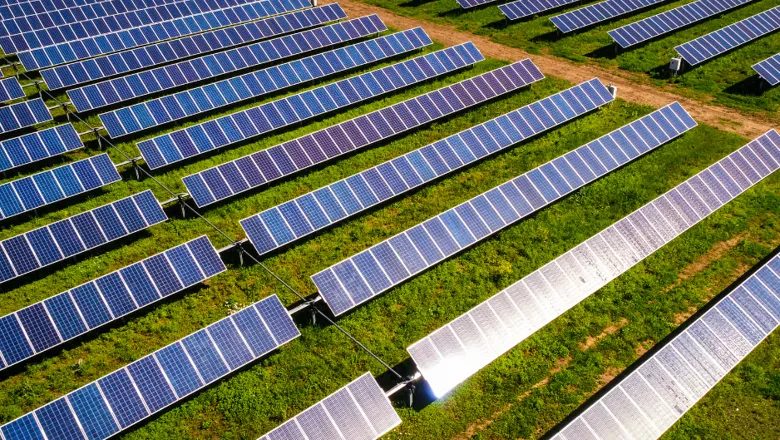20 May 2025
Energy transition could 'perpetuate inequality' if issues aren't addressed
The global transition to renewable energy could perpetuate existing inequalities if issues around land conflicts and financial speculation are not addressed, a new study has suggested.

Focussing on the expansion of solar energy in Spain, researchers at King’s College London and the Open University of Catalonia found a complex landscape of economic gains, displaced rural communities, and reliance on globalised production.
Published in the journal Environment and Planning E: Nature and Space, the researchers highlight how Spain’s market-driven transition - touted as a model for renewable adoption globally - is entangled with land conflicts, financial speculation, and asymmetrical value transfers tied to China’s solar manufacturing dominance.
Spain aims to generate 81 per cent of its electricity from renewables by 2030, with solar playing a central role. However, the study, co-authored by Dr Thomas Purcell and Professor Alex Loftus (King’s College London), and Professor Hug March (Open University of Catalonia) reveals contradictions.
While solar module costs have plummeted by 94.9 per cent since 2007 - driven by China’s industrial scale and low labour costs - the transition has intensified competition for land. Regions like Extremadura and Castilla y León have seen agricultural land rents soar from about £250/hectare to more than £1,500/hectare as developers secure space for large solar farms. In Burgos, land prices have spiked 21.5 per cent since 2015, displacing farmers who often lack ownership rights.
The researchers trace two solar booms: an initial state-subsidized surge (2007–2012) that collapsed under austerity cuts, and a post-2018 revival fuelled by Power Purchase Agreements (PPAs). These long-term contracts, such as those underpinning the subsidy-free Don Rodrigo plant in Seville, guarantee revenue streams for investors while locking in low energy prices. Yet the financialisation of land - evidenced by utilities like Iberdrola selling and leasing back parcels - exposes how solar farms increasingly serve as rent-bearing instruments for global investors, including sovereign wealth funds.
The study cites legal disputes, such as energy supplier Iberdrola’s attempted expropriation of land in Badajoz, as an example of the tensions over differential rents and public interest claims.
The researchers argue that without addressing entrenched power relations—spanning Chinese manufacturing, Spanish landownership, and speculative finance—the green energy transition risks perpetuating inequality.
Read more...
The full study, Value-Rent-Finance in Spain’s Solar Transition, is available in Environment and Planning E: Nature and Space.


